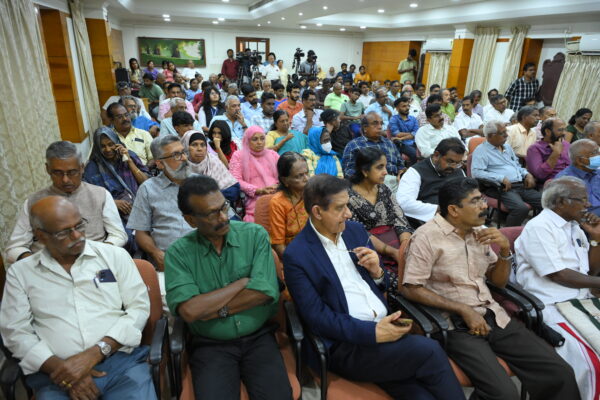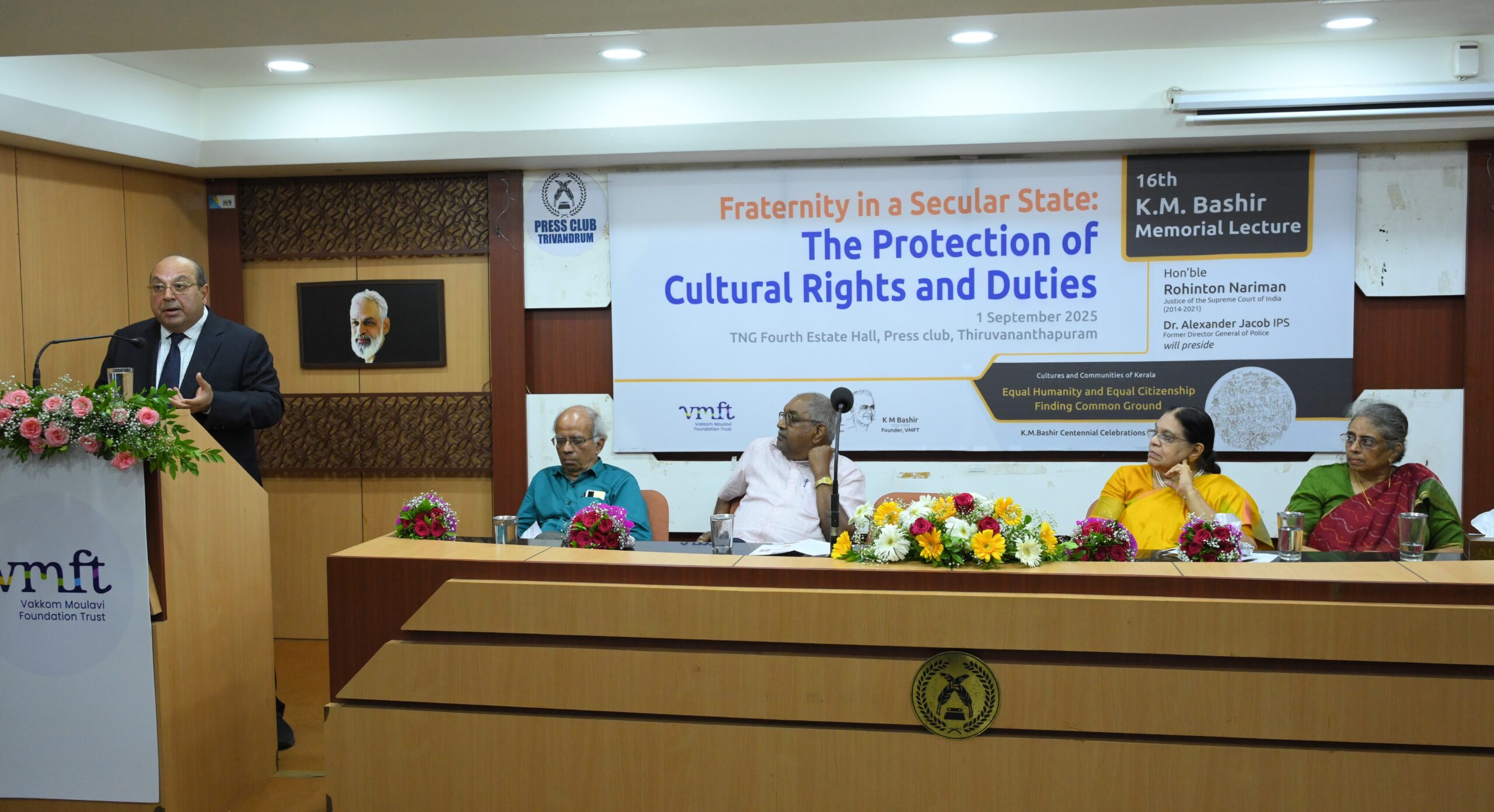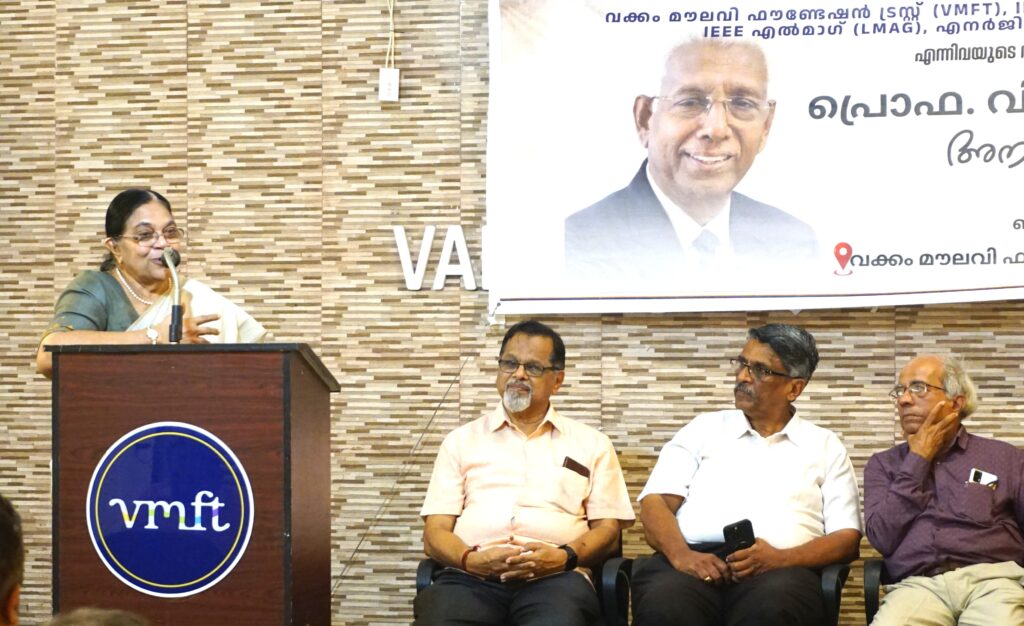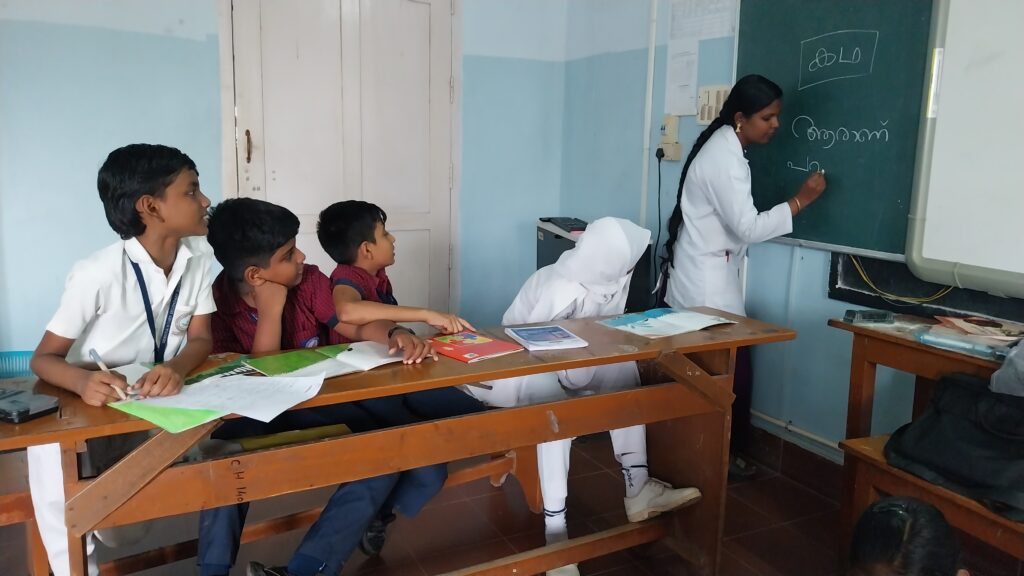On 1st Sept, 2025, we had the honour of hosting Hon’ble Justice Rohinton Fali Nariman, former Judge of the Supreme Court of India, as the keynote speaker at the 16th K.M. Bashir Memorial Lecture. Widely regarded as one of the most distinguished legal minds in the country, Justice Nariman’s presence and insights made the evening a landmark in the history of the Foundation. A large audience drawn from all walks of life, jurists, students, university faculty, social activists and friends of VMFT listened in rapt attention to a powerful speech that went to the heart of the most important issues facing our country.
Professor Jameela Begum, President of VMFT, opened the event by welcoming the gathering and noting the deep relevance of fraternity and secularism in today’s world. The proceedings were presided over by Dr. Alexander Jacob IPS.
Remembering K.M. Bashir
On the centenary of Shri K.M. Bashir’s birth, Dr. Sajitha Bashir paid tribute to his legacy. She recalled him as a first-generation learner shaped by Kerala’s social reform movements, who rose to international stature while remaining deeply committed to justice and fraternity. For him, fraternity was not just a moral ideal but an economic and political imperative, and he founded VMFT to give voice to those values. His vision, she noted, continues to guide the institution’s mission of nurturing dialogue, dissent, and democratic ideals.
Justice Nariman’s Lecture: Fraternity in a Secular State
Delivering the memorial lecture on the theme Fraternity in a Secular State: The Protection of Cultural Rights and Duties, Justice Nariman captivated the audience with a masterly exploration of India’s constitutional values.
He began by identifying secularism and fraternity as twin pillars of the Indian Constitution—one explicit, the other aspirational. Secularism, he noted, was implicit from the start and made explicit in the 42nd Amendment. Fraternity, present in the Preamble, gained sharper focus with the addition of fundamental duties in 1976.
Justice Nariman emphasized that fraternity safeguards dignity and ensures the unity and integrity of the nation. Without secularism, he argued, fraternity cannot exist, since a theocratic state excludes equality. He explained secularism in the Indian context through three strands:
- The state has no religion of its own
- The state cannot discriminate among citizens on grounds of religion
- Individuals are guaranteed freedom of conscience, including the right to propagate faith.
In a powerful critique, he urged the Supreme Court to revisit its Rev. Stanislaus (1977) judgment, which restricted propagation by excluding conversion. Voluntary conversion through persuasion, he insisted, is both a free speech right and a human right.
Justice Nariman also explored the constitutional limits on religious freedom, public order, morality, health, protection of fundamental rights, regulation of secular activities tied to religion, and social reform, illustrating how they safeguard both liberty and fraternity.
Drawing from his book An Ode to Fraternity, he traced moral teachings across religions: Zoroastrianism’s “good thoughts, good words, good deeds”; Christianity’s call to love one’s neighbor; Sikhism’s tradition of langar; Islam’s acceptance of suffering; Jainism’s non-violence; Buddhism’s Eightfold Path; and Hinduism’s doctrine of karma and duty. Despite diversity, he underlined, all faiths share a moral core that strengthens fraternity.
Linking values to symbols, he spoke of the national flag, where the white band represents peace and harmony among all faiths, and the Ashoka Chakra embodies dharma. Citing Ashoka’s edicts, he reminded that respecting other people’s faiths is the essence of concord. Every time Indians see the tricolor, he urged, they should recall their duty to treat each fellow citizen as a brother or sister.

A Call for Fraternity
In closing, Justice Nariman reminded the audience that while governments may change, constitutional values endure. Fraternity, he said, is the most urgent global value today, at a time when the world has drifted from brotherhood to fratricide. The stakes are nothing less than the dignity of individuals and the unity of the nation.
The lecture was followed by a lively interaction, where Justice Nariman fielded questions on the basic structure doctrine, the role of religion in moral life, freedom of speech online, and the global relevance of fraternity. With wit and clarity, he left the audience with fresh insights into the challenges of upholding constitutional ideals.
The event concluded with a vote of thanks from Er. A. Suhair, Chairman of VMFT, who expressed gratitude to Justice Nariman, Dr. Alexander Jacob, and all who contributed to the occasion.
A Milestone for VMFT
The 16th K.M. Bashir Memorial Lecture will be remembered as a milestone for VMFT, not only for honoring the centenary of its founder, but above all for hosting Justice Rohinton Fali Nariman, whose words on secularism and fraternity will resonate long after the evening ended.



